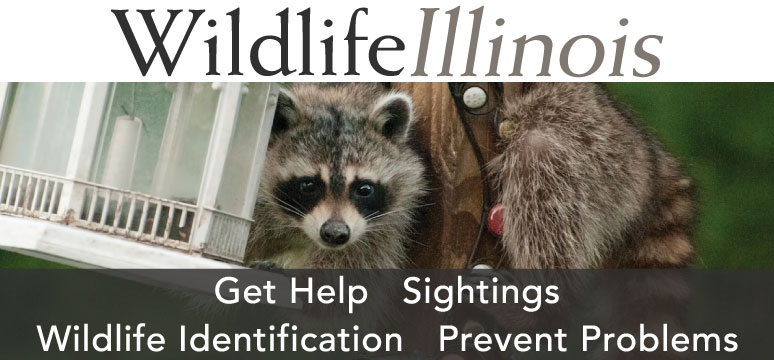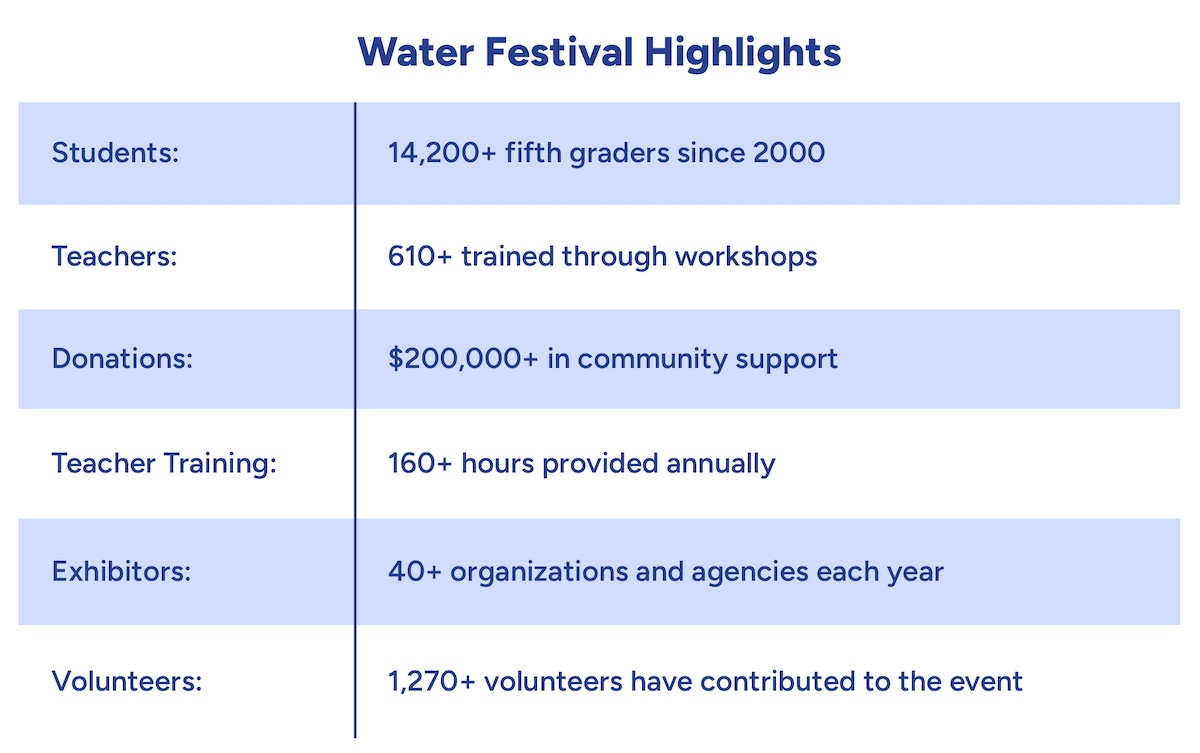
All photos by Alan Shawgo, Route 3 Films.


All photos by Alan Shawgo, Route 3 Films.
Each fall, Godfrey, Illinois, comes alive with the sounds of laughter, curiosity and scientific discovery. On the Lewis and Clark Community College campus, located just a few miles from the confluence of the Mississippi, Missouri and Illinois rivers, more than 950 fifth grade students gathered this September for a day devoted to exploring one of our most precious resources: water.
Now in its 23rd year, the annual Water Festival, hosted by the National Great Rivers Research and Education Center (NGRREC), has become one of Illinois’ longest-running youth environmental education events. Each year, the festival unites educators, scientists, and conservationists to help students connect with the science and stories of our region’s rivers and wetlands.
The Water Festival began in 2000 when Lewis and Clark faculty member Marvin Mondy recognized a gap in environmental education for elementary students. While older students often had opportunities for hands-on science experiences, few programs existed for younger learners. His solution was simple and visionary: a one-day festival that combined science, play and exploration to help students understand water’s vital role in their world.
What began as a small, local effort has grown into a regional tradition involving 48 schools from eight counties across the confluence region of Illinois and Missouri. Over the past two decades, more than 14,200 students and 610 teachers have participated. The program remains completely free for schools, with transportation, teacher training, and classroom materials fully supported through donations and sponsorships.

At Water Festival, science comes to life through experience. Students rotate through a series of interactive stations designed to transform big ideas into hands-on understanding. Guided by scientists, educators, and conservationists, they might test water quality, identify aquatic insects, explore pollution impacts, or discover how renewable energy connects to water use.
Activities led by the Illinois Department of Natural Resources (IDNR) include canoe demonstrations, while partners such as the U.S. Army Corps of Engineers, Illinois American Water, St. Louis Zoo, and the Audubon Center at Riverlands introduce students to the many ways people study, manage and protect our waterways.
Teachers also attend pre-festival training workshops, receiving curriculum kits to take water education back into the classroom, ensuring that the lessons learned continue throughout the school year.
The Water Festival is more than a field trip. It’s an opportunity to spark lasting curiosity and environmental understanding. The event centers on three main areas of focus:
By reaching students at a formative age, NGRREC helps nurture an appreciation for science and the environment that can last a lifetime. Many teachers return year after year, building on the festival experience in their own classrooms and communities.
The Water Festival continues to evolve each year, reflecting new science, innovative teaching strategies and the realities of a changing environment. After weather challenges in 2024 prompted the creation of “Water Festival on Wheels,” which brought portable water science lessons to area schools, the 2025 event returned to full capacity. This year welcomed more students, more stations and more partners than ever before.
For many students, Water Festival represents their first close encounter with the ecology of rivers and wetlands. For some, it’s the moment that sparks a lifelong connection to the environment and, possibly, a future career in conservation.
When a student kneels beside a tray of water and spots a dragonfly nymph darting beneath the surface, they’re doing more than learning science—they’re discovering connection.
That spark of curiosity ripples outward, flowing through classrooms and communities across the region. Thanks to the dedication of educators, volunteers, and sponsors, NGRREC’s Water Festival continues to show that meaningful environmental education doesn’t just teach about water—it flows with it.
Jessica Mohlman is the Director of Environmental Education and a Wildlife Ecologist at the National Great Rivers Research and Education Center (NGRREC), where she leads educational programming, community science initiatives and public engagement projects that connect people to river ecosystems. With a passion for mentoring students and making science accessible, she is dedicated to bridging the gap between research and public understanding. Originally from northern Illinois, she earned her B.S. from Northland College in Ashland, Wisconsin and her M.S. from the University of Georgia in Athens.
Submit a question for the author